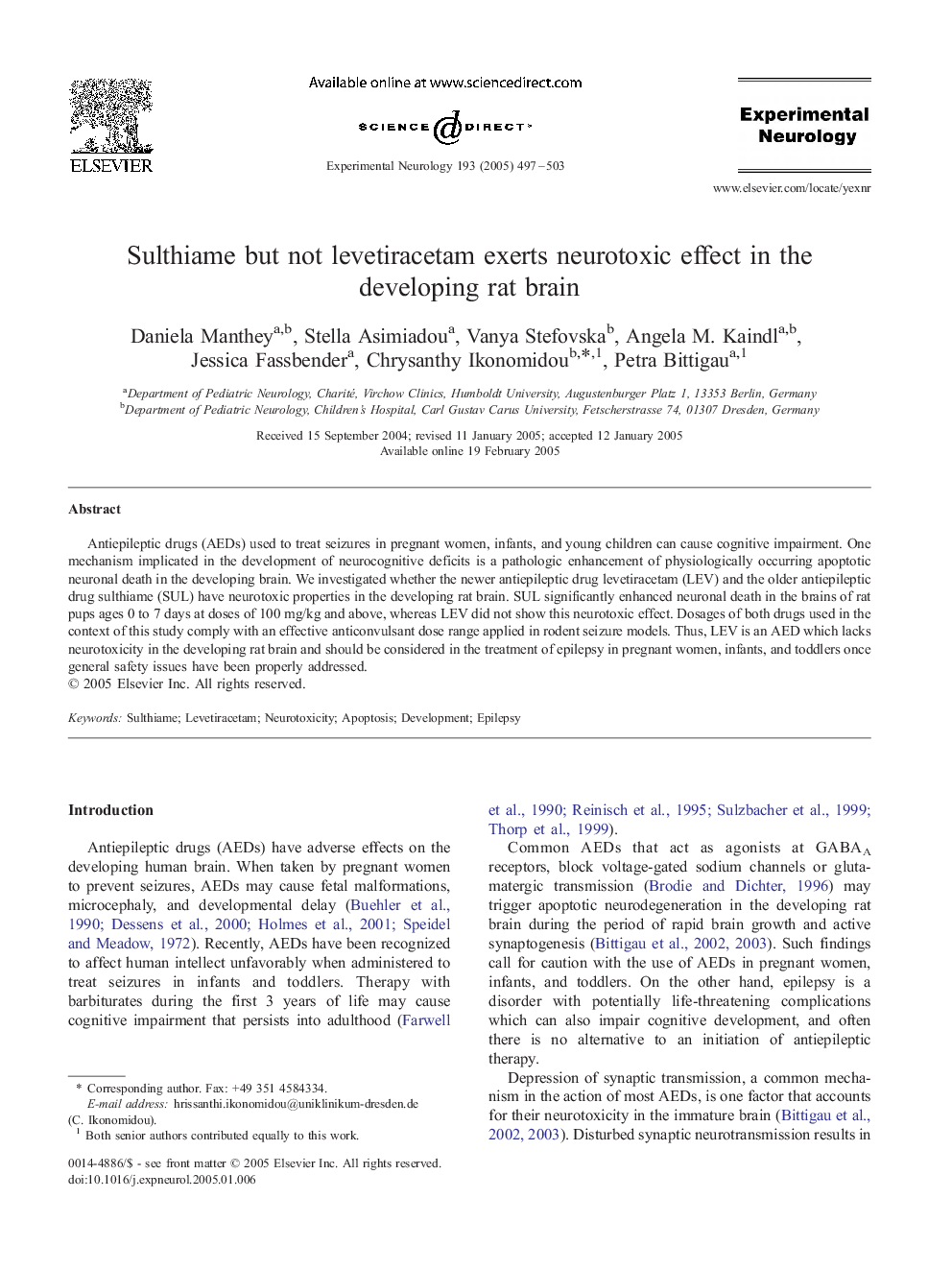| Article ID | Journal | Published Year | Pages | File Type |
|---|---|---|---|---|
| 9191893 | Experimental Neurology | 2005 | 7 Pages |
Abstract
Antiepileptic drugs (AEDs) used to treat seizures in pregnant women, infants, and young children can cause cognitive impairment. One mechanism implicated in the development of neurocognitive deficits is a pathologic enhancement of physiologically occurring apoptotic neuronal death in the developing brain. We investigated whether the newer antiepileptic drug levetiracetam (LEV) and the older antiepileptic drug sulthiame (SUL) have neurotoxic properties in the developing rat brain. SUL significantly enhanced neuronal death in the brains of rat pups ages 0 to 7 days at doses of 100 mg/kg and above, whereas LEV did not show this neurotoxic effect. Dosages of both drugs used in the context of this study comply with an effective anticonvulsant dose range applied in rodent seizure models. Thus, LEV is an AED which lacks neurotoxicity in the developing rat brain and should be considered in the treatment of epilepsy in pregnant women, infants, and toddlers once general safety issues have been properly addressed.
Related Topics
Life Sciences
Neuroscience
Neurology
Authors
Daniela Manthey, Stella Asimiadou, Vanya Stefovska, Angela M. Kaindl, Jessica Fassbender, Chrysanthy Ikonomidou, Petra Bittigau,
